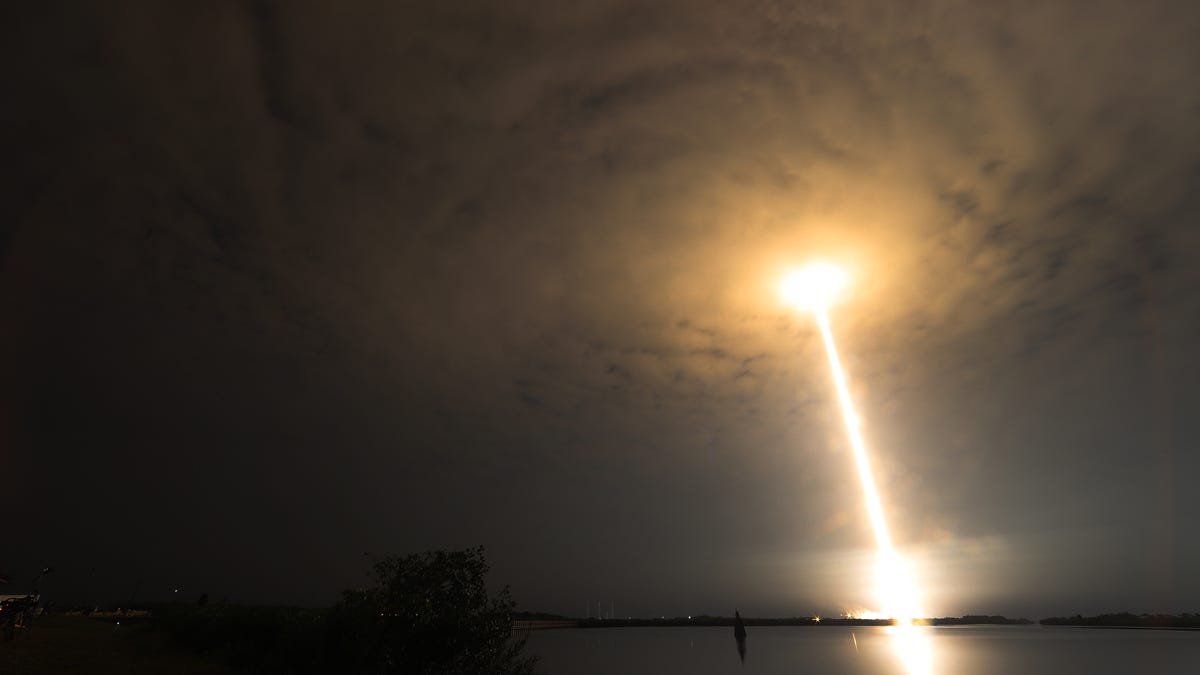
But rocket launches come with big emissions, the atmospheric impact of which isn’t fully understood.
Drikakis and his University of Nicosia colleague Ioannis Kokkinakis specifically looked at the exhaust emissions from a computer model they built, one meant to closely match the 2016 Thaicom-8 launch of SpaceX’s Falcon 9 rocket, which obtained its power from the fuel RP-1, or Rocket Propellant-1, which is similar to jet fuel.Based on their models, the researchers estimated that the single Falcon 9 rocket produced around 116 metric tons of carbon dioxide in the first 165 seconds of its journey.But much of the emissions produced in the model study appeared in the higher altitude mesosphere, where the climate impacts of C02 are less well understood than they are closer to Earth.
This now adds to the list of poorly understood atmospheric changes that rocket launches could be creating.
In the first 70 seconds of the studied launch, the SpaceX rocket produced an estimated one metric ton of NOx, equivalent to about 1,400-cars-worth of annual emissions, according to Drikakis.
But he added that this paper doesn’t actually assess the climate impacts of the rocket launch.
“I think the important global impacts of rocket NOx emissions are likely to be destruction of stratospheric ozone as opposed to air quality.”.
In addition to chipping away at those uncertainties, the scientists plan to further explore the link between ozone depletion and space launches in future research.